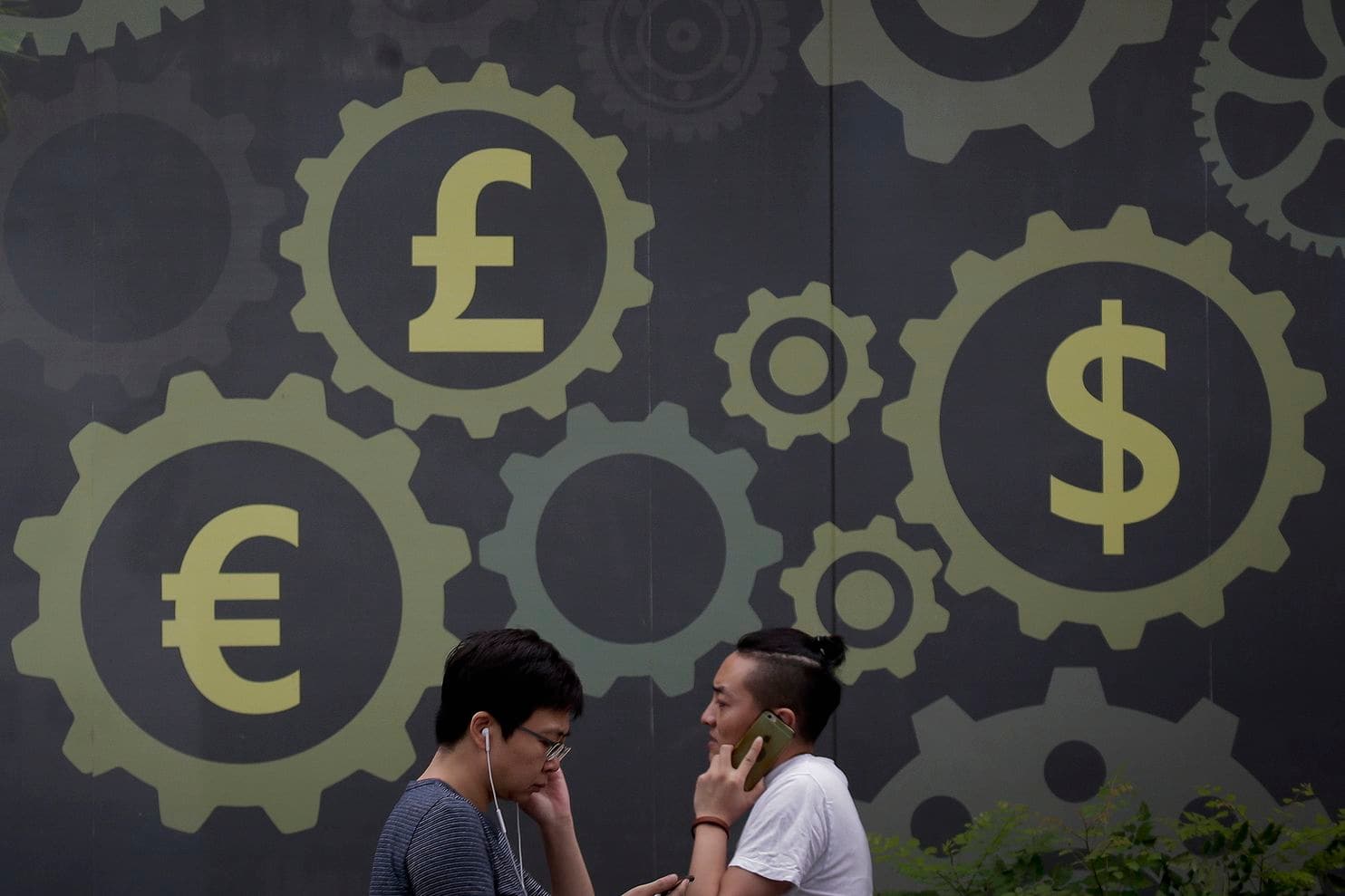
The Washington Post reports: "Locked in an increasingly rancorous trade war, the United States and China don't see eye to eye on many economic issues. A notable exception: the Chinese currency. The Chinese yuan, also called the renminbi, fell to its lowest point in 21 months on Thursday, edging closer to an exchange rate of seven to the U.S. dollar. It would be the first time it had crossed this psychologically important line since the global financial crisis in 2008. 'It's the only issue that Trump and China agree on,' said Andrew Polk of Trivium China, a Beijing-based economics consultancy. 'Neither of them wants the currency to depreciate.' Yet this is not so much a case of the yuan being weak as it is of the U.S. dollar being strong, economists say. The dollar has been strengthening as the world's biggest economy grows robustly, fueled by President Trump's tax cuts, and as the Federal Reserve has raised interest rates. In this intensifying trade war, however, everything is fair game, and the currency could be the next line of attack for the Trump administration. 'The U.S. is trying to put everything under the microscope,' said Polk. 'No stone is going to go unturned in terms of complaints.'"
The New York Times reports: "Defense Secretary Jim Mattis tried to lower the temperature on the array of hostilities between Washington and Beijing on Thursday, saying it is up to the militaries of the two competing global superpowers to act as a stabilizing force amid rising political tensions. During an hour-and-a-half meeting with his Chinese counterpart, Mr. Mattis sanded down some of the sharp edges from Vice President Mike Pence's pointed critique of China this month. Mr. Mattis urged the two militaries to talk through their many differences and even repeated an invitation for Wei Fenghe, China's defense minister, to visit the United States, according to a senior Defense Department official who was in the meeting. But the cordial tone belied deep tensions that showed no signs of abating on Thursday. China, as it usually does, brushed off Mr. Mattis's complaints about Beijing's continued militarization of disputed islands in the South China Sea."
CNN reports: "By now, it's clear that every global fashion brand wants to harness the massive spending power of China's urban middle class. But Shanghai Fashion Week suggests that there's also a growing force of domestic talent ready to tip the scales. Chinese designers are having their moment, both at home and at the 'Big Four' (fashion weeks in New York, London, Paris and Milan). And this Spring-Summer 2019 season has underscored their influence, especially among an outspoken, style-conscious millennial generation. Shanghai Fashion Week is still considered secondary to the main circuit, but it has grown considerably since its 2003 debut, nearly doubling in size in the past five years. Hip-hop wear and Balenciaga-inspired sneakers may rule Shanghai's streets, but inside the tents, commercial brands and emerging designers brought diverse perspectives to what 'Made in China' truly means. Here are four takeaways from the event."
- 2018-10-17 Trump Opens New Front in His Battle With China: International Shipping Image
- 2018-10-16 $6 trillion of local government debt may be lurking under the surface in China
- 2018-10-15 Blame the U.S. for the Weaker Chinese Currency
- 2018-10-14 'You tell me': China ambassador stumped on who aids Trump on trade
- 2018-10-12 China’s trade surplus with the U.S. hit a record $34.1 billion in September amid trade war
- 2018-10-11 The Trump administration is right to redefine relations with China
- 2018-10-10 In New Slap at China, U.S. Expands Power to Block Foreign Investments Image
- 2018-10-09 Interpol Chief Was China’s Pride. His Fall Exposes the Country’s Dark Side.
- 2018-10-07 China Acts to Shore Up Economy Amid Weight of Trade War
- 2018-10-05 China’s Small Farms Are Fading. The World May Benefit.
- The Washington Post China's weak currency is helping it in the trade war — but Beijing doesn't want it to fall further
- The New York Times Jim Mattis, Meeting His Chinese Counterpart, Tries to Ease Tensions
- CNN Shanghai Fashion Week: Gen Z consumers and the new 'made in China'
- The Wall Street Journal No More Mail Privilege for China as U.S. to End Deep Discounts on Packages
- Forbes China Stops Buying U.S. Oil, Two Months After Record Total
- CNBC China's Commerce Ministry: We're holding out hope for better-than-ever US relations
- The Wall Street Journal Mattis Tries to Dial Back Confrontation With China in Defense Talks
- TIME Chinese Woman Kills Herself and Her Children After Her Husband Fakes His Death
- CNBC HSBC reportedly looking into becoming the first foreign company to list in China
- TIME Why $1 Ebay Yoga Pants Could Be the Latest Victim of President Trump's Trade War With China
- The Wall Street Journal American Pork, Buffeted by Tariffs, Is Losing
- CNBC China may 'ease up' on sanctions against North Korea as the trade war drags on
- Bloomberg China Is the World's Retail Laboratory
- Foreign Policy I Mastered Xi Jinping Thought, and I Have the Certificate to Prove It
- The Economist The end of engagement
- Council on Foreign Relations What Latin America Should Tell China About Venezuela
- Foreign Policy Nowhere to Run in Xi's China
- The National Interest How China's Aircraft Carriers Could Become Truly Deadly
- The Diplomat How China's AI Technology Exports Are Seeding Surveillance Societies
- The National Interest Is the U.S. Navy Too Small to Protect Convoys in a War with Russia or China?
